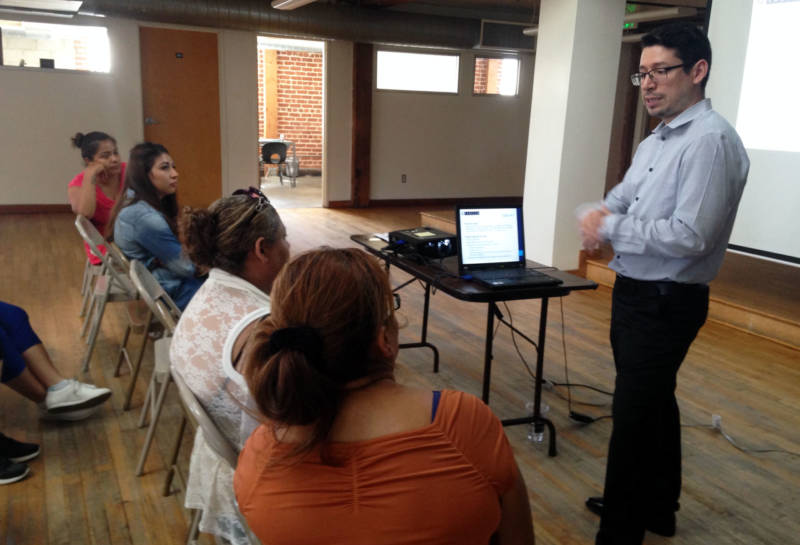As Central Americans continue to arrive in the U.S. seeking asylum, low-cost legal providers are in short supply, so some immigrants are learning to represent themselves in immigration court.
That's why about a half-dozen women sat at a meeting room downtown one recent afternoon, listening intently to a staff lawyer with the Central American Resource Center, an immigrant aid organization near downtown Los Angeles. They were learning what to expect in immigration court when they represent themselves pro se, acting as their own lawyers.
Katherine Navarrete, 20, who came to this country two years ago from El Salvador seeking asylum, was among them. She said she wanted to escape rampant gang violence. Her court date to seek asylum is scheduled in a few months.
"I want to defend myself because I don’t have the resources," Navarrete said in Spanish. She doesn’t have the money to hire an immigration lawyer, she explained.
